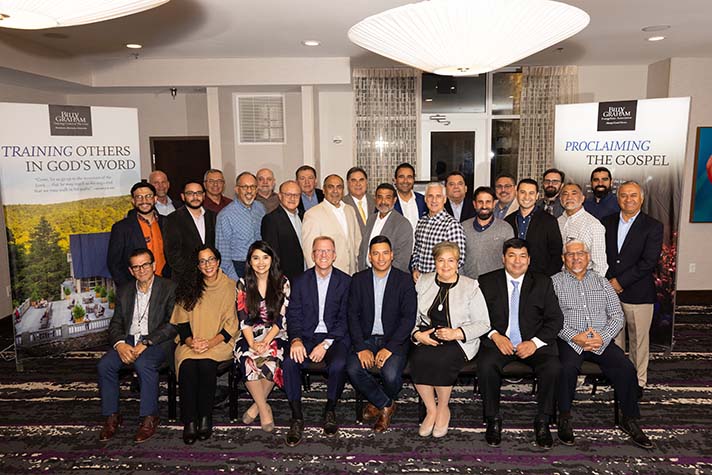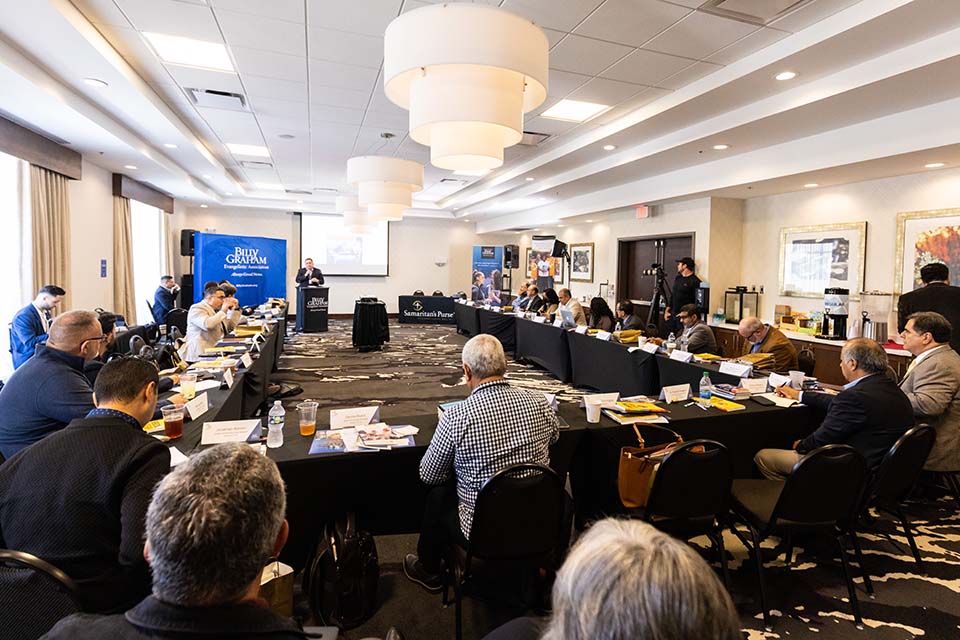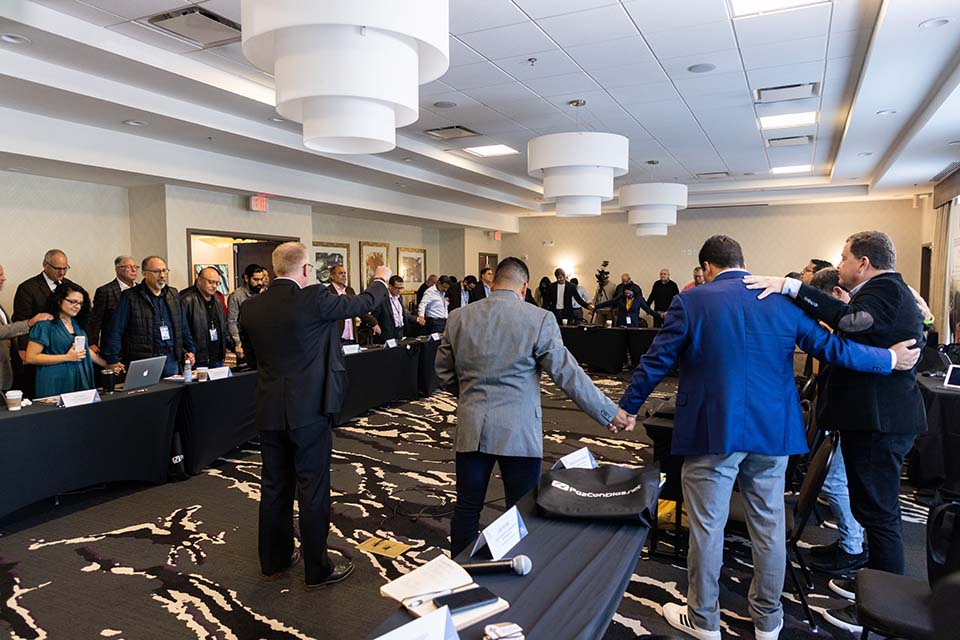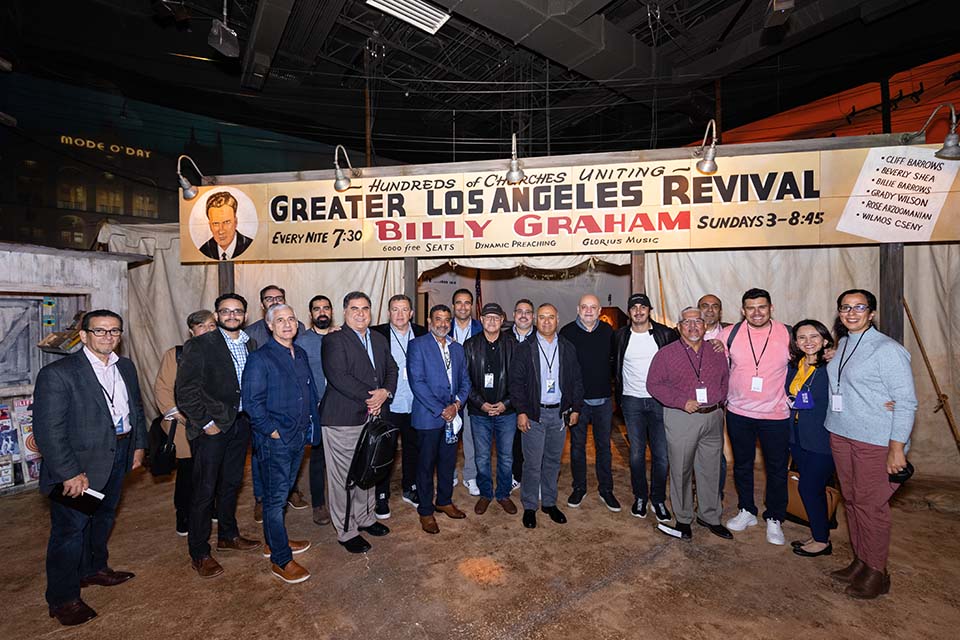
“By this all people will know that you are my disciples, if you have love for one another.” —John 13:35, ESV
Not criticizing or judging other churches or Christian ministries is one of the points in the famous Modesto Manifesto that’s been a standard of Biblical integrity and morality in Billy Graham’s ministry since 1948.
“We determined to cooperate with all who would cooperate with us in the public proclamation of the Gospel,” the Manifesto states.
The heart behind this rule got to shine in all its splendor this week at the First Hispanic Leadership Encounter held by the Billy Graham Evangelistic Association (BGEA) and Samaritan’s Purse in Charlotte, North Carolina.
These ministries convened 25 evangelical leaders—including presidents of evangelical Hispanic church alliances and evangelistic associations, leaders of various denominations, and directors of publishing houses and various high-impact Christian ministries among the Hispanic community.
The gathering’s main objective was to create a space for dialogue about what God is doing through each of these ministries, exchange experiences and knowledge about how to better serve the United States’ Hispanic population, and discuss strategies for the Hispanic church as a whole to have a greater impact in communities for the glory of God.

Participants had the opportunity to present the current state of their ministries, including their needs and perspectives. During the sessions, several topics captured the attention of those present and led to deeper conversations.
In one of the sessions, the BGEA presented the vision for its Hispanic Initiatives Ministry. And on Thursday morning, an entire panel of leaders spoke from each of the ministries operating within the BGEA.
“Our intention in presenting the different ministry arms of the BGEA is to show very clear and definite options of how we can work together,” commented Chris Swanson, vice president of Hispanic Initiatives.
“It would be a blessing if you could help us locate bilingual volunteers for our Rapid Response Team and to serve working on Internet Evangelism. We need volunteers in several of our ministries,” he added.
Towards the end of the event, the attendees worked to reach an agreement on the strategies these ministries should prioritize, including placing prayer above all else, designing creative ways to reach children and youth—and to help them to stay in church—and creating programs to care for pastors and their families.
“It fills me with excitement to be here and hear all that each one of these ministries is doing. It fills me with hope to know that there is a future for the Hispanic church in the United States because I see that there is passion for the Lord in your hearts,” said William Portillo, Hispanic leader in the Presbyterian Church in the United States.
One of the highlights of the event took place on Wednesday night, when all the participants joined in a deep time of prayer and worship. The Lord led all these leaders to pray for the United States, for their communities, and most especially, for one another.

Seen from the outside, what shone most in this event was the love between brothers and sisters in Christ. Denominational differences and even divergent opinions were not a cause for conflict or debate. On the contrary, all comments always sought the benefit of others, the selection of arguments based on the Scriptures and the search for effective strategies to achieve the advancement of Christ’s kingdom.

“Let’s keep the dialogue going,” Swanson concluded. “Let’s keep dreaming how God can help us work together.”
“Behold, how good and pleasant it is when brothers dwell in unity!” —Psalm 133:1, ESV

